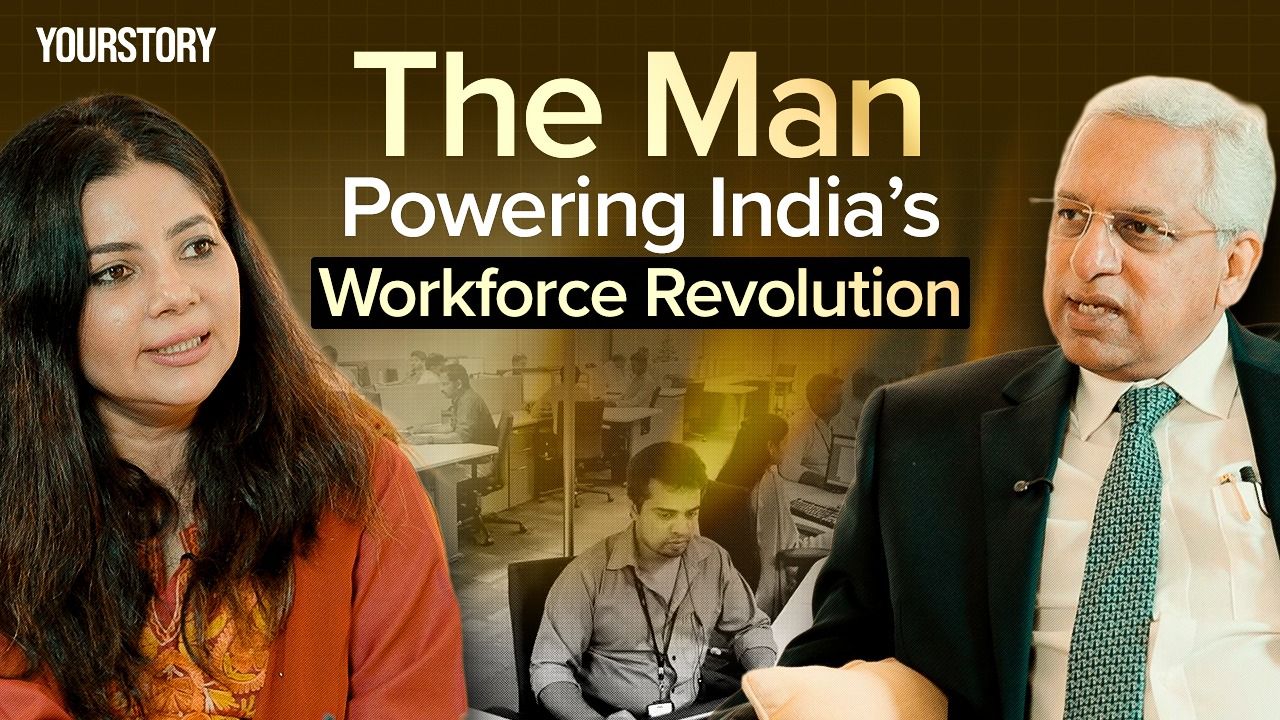Copyright yourstory

In a rapidly evolving global economy, three transformative forces are reshaping the Indian workforce: the rise of flexible employment contracts, the mainstreaming of hybrid work models, and the disruptive potential of artificial intelligence (AI). As India navigates this tectonic shift, companies like Quess Corp are emerging as bellwethers of change, blending entrepreneurial foresight with scalable solutions that address both structural and social dimensions of employment. The contractual revolution Gone are the days of single-job careers and linear employment trajectories. Today, India’s workforce is adapting to a multiplicity of work arrangements: Permanent employment under a single company remains a foundation. Flexi staffing and gig-based work are rapidly growing, especially in urban sectors. Output-based contracts and moonlighting allow professionals to work for multiple clients simultaneously. "The nature of contracts has completely changed. Earlier, my father had one job, one boss, one house, one car, and one wife. Now, we work for four or five employers—sometimes even two or three at the same time," says Ajit Isaac, Founder and Chairman of Quess Corp, in a conversation with YourStory Founder and CEO Shradha Sharma. This diversification reflects a global trend, but India’s vast labour force, supported by digital platforms and a maturing outsourcing industry, makes the transformation especially profound. Quess, with over 630,000 employees, positions itself at the intersection of this trend, acting as a market maker that connects supply with demand and reduces the friction inherent in India's hiring processes. Hybrid work: From emergency to norm The COVID-19 pandemic catalysed remote work, but what began as a necessity has evolved into a sustainable model. An estimated 20–25% of jobs can now be done entirely from home, with an additional 20–25% suitable for hybrid formats. Yet, the shift is not without caveats. "There is people equity that comes from working together," says Ajit Isaac, Executive Chairman of Quess. Collaboration, mentorship, and cultural assimilation still thrive best in physical environments, particularly in knowledge industries. The challenge, then, is balance—leveraging the efficiency of remote work while preserving the synergy of in-person collaboration. The AI disruption: Underestimated and overdue AI's influence on jobs is both imminent and misunderstood. "In the long term, its impact is underestimated. In the short term, it is overestimated," Isaac notes. While automation is already reshaping repetitive tasks, the true disruption lies in the use-case explosion and the demographics of its talent pool. "AI is gender agnostic, region agnostic; it doesn't distinguish between men and women, or between geographies," Isaac explains. "Whatever happens in developed markets will come to India quickly. India stands at a unique inflexion point: It hosts one of the world’s largest AI use-case libraries. A significant portion of global AI talent is of Indian origin. This dual advantage provides India with a potential leadership position in the AI economy, but it also raises questions about the future of employment, skilling, and inclusion. Addressing structural inequities Isaac emphasises that employment is not just economic, it is existential. "Employment has frictions. From drafting job descriptions to hiring and onboarding, there's dropout at every stage," he says. "Our job at Quess is to reduce that friction, to connect supply with demand." To address this, Isaac recommends a holistic approach: Attract investment into underdeveloped states. Improve skilling through apprentice-based and job-ready programmes. Ease regulatory burdens, especially labour-related compliances, which constitute nearly 50% of all corporate regulations. "You can't fix this with a single policy. It's cultural, infrastructural, and systemic," he adds. The gender dividend Quess's workforce today is 50% women, a deliberate decision with economic impact. "Hiring women has a business impact. They are more intuitive, disciplined, and improve overall team performance," Isaac notes. Studies suggest a 5–20% increase in profits when gender diversity improves. But beyond profits, women in the workforce gain agency: financial independence, decision-making power, and a stronger societal voice. "When women have money in their wallets, they make better choices—for themselves, for their families, and for society," Isaac emphasises. Reimagining human capital India's youthful demographic is often cited as its greatest strength. Yet, with 55–60% of graduates deemed unemployable, the gap between education and industry expectations remains stark. "We need to move to apprentice-style programmes—learn a bit, work a bit, learn more on the job. Classrooms alone won’t cut it," says Isaac. Raising minimum wages, he argues, would not only increase disposable income but compel employers to enhance productivity—an essential lever for GDP growth. "When wages go up, employers expect more. That demand for productivity will lift the whole system." Moreover, he calls for greater private sector accountability in providing employee benefits and long-term investments in health, housing, and transportation, social infrastructure that underpins a productive workforce. The path forward Quess’ evolution, from a small staffing firm to a diversified conglomerate with IT and infrastructure arms, mirrors India’s own journey from informal employment structures to formalised, digitally enabled, and globally integrated labour systems. To sustain this momentum, India must: Expand private capital formation Reform labour regulation Strengthen skilling ecosystems Address regional imbalances Prioritise gender and social inclusion "We're lucky to have caught the economic tailwinds at the right time. But this work is structural—it’s about building for the long term," Isaac concludes. As the world hurtles toward an AI-led future, India's workforce will need agility, policy support, and visionary leadership. Companies like Quess offer a glimpse of what’s possible when business goals align with nation-building imperatives. (Edited by Kanishk Singh)



